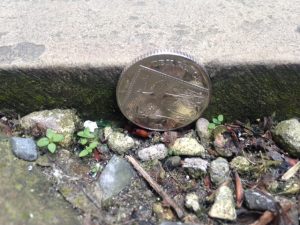If you have been unlucky enough to suffer an accident, the chances are you will probably be in some pain and suffering from shock. If you have fallen in a public place, you may also feel a degree of embarrassment and want to leave the scene of your accident as soon as possible. These factors mean that you may not be thinking clearly and collecting evidence at the time of your accident is unlikely to be at the forefront of your mind. These next few tips however may be helpful if at some future date you do find yourself involved in an accident.
What information should I obtain?
Always try to record as much information as you can at the scene. Some evidence may not be available later on if you do decide to make a Personal Injury claim.
- If you have fallen, take photographs of the defect that caused you to trip and fall. Also use a ruler to show the height and depth of the defect.
- Take the contact details of any witnesses to your accident.
- If you are injured in a commercial property, find out if there is an accident book and make sure your accident is recorded.
- If police attend at the scene, take the attending officer’s details and make a note of any incident or reference number.
- In relation to road traffic accidents, obtain the name and address of the other driver as well as the name and address and policy number of their insurer. If you are a passenger in a vehicle, take this information also from your driver (even if you do not hold your driver responsible for the road traffic accident.
Dealing with your injuries
Make sure that you seek medical treatment either at hospital or from your local GP as soon as possible after your accident.
Sometimes, the trauma of the accident can mask the pain that you experience and so it may be worthwhile still visiting your doctor even if you feel alright.
Often, symptoms can develop a short while after the accident occurred and so again, you may wish to consult your GP and refer to the accident if you think that the onset of symptoms and the accident circumstances could be related.
Out of pocket expenses
Remember to keep a full record of any out of pocket expenses that you incur as a result of your accident. This may include, for example, the cost of obtaining medical treatment, travel involved in obtaining that medical treatment, any other expense you attribute to the accident and injuries suffered.
Try to keep your receipts for any items purchased if possible.
So why do I need a mobile phone and a 10p piece?
As indicated above, if you have fallen, photographs of the defect that caused you to fall (or substance that caused you to slip) are vital as often the defect may be repaired or removed before you have an opportunity to return to the scene and take photographs. Many people carry a mobile phone with a camera and so taking a photo of the scene of the accident captures that vital piece of evidence to assist you pursue your personal injury claim.
Specifically looking at tripping claims, we need to know the height/depth of the defect. You may be unlikely to have a ruler about your person but if you have a 10p piece or some other everyday familiar object that can be placed against or in the defect the height/depth of the defect can be assessed.

This guide is not meant to include an exhaustive list of all the evidence that you need to obtain. Similarly, do not assume that you will not be able to make a claim if you have not collected this type of evidence.
We hope the information set out above is helpful if you are unfortunate enough to be involved in an accident.

